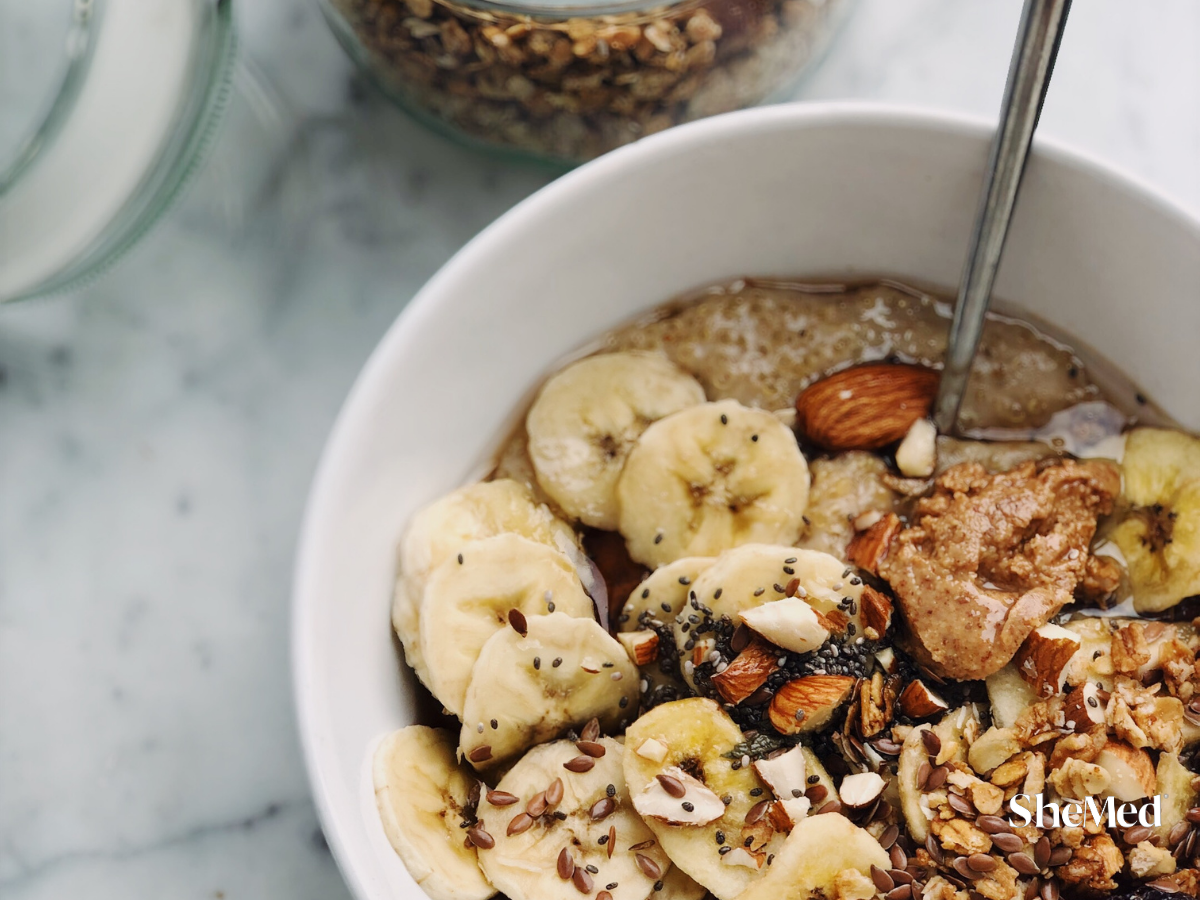
Ever feel like you're doing everything right - eating healthy, exercising regularly - but the weight loss isn't happening? You might be surprised to learn that proper hydration can be a missing piece of the puzzle! Water is essential for overall health and plays a crucial role in weight management. For women in the UK, staying properly hydrated can be particularly challenging due to busy lifestyles, hormonal fluctuations, and the often unpredictable British weather. However, understanding the link between hydration and weight loss can be a game-changer in your health journey. According to the NHS, nearly 60% of women in England are classified as overweight or obese. While there's no single solution to this complex issue, proper hydration is an often overlooked factor that can support weight loss efforts.
The Science of Hydration
The Role of Water in the Body
Water is vital for numerous bodily functions, including
- Regulating body temperature
- Transporting nutrients and oxygen to cells
- Removing waste products
- Lubricating joints
- Protecting organs and tissues
- Supporting digestion and metabolism
Dr. Sarah Schenker, a registered dietitian and nutritionist, emphasises: Proper hydration is crucial for maintaining optimal bodily functions. Water helps regulate metabolism, aids in digestion, and supports the body's natural detoxification processes. All of these factors can indirectly impact weight management.
Dehydration and its Effects
Even mild dehydration can negatively impact metabolism, energy levels, and overall well-being. Symptoms of mild dehydration include.
- Feeling thirsty
- Dark yellow and strong-smelling urine
- Feeling dizzy or lightheaded
- Feeling tired
- Dry mouth, lips and eyes
- Urinating little, and fewer than 4 times a day
These effects can hinder weight loss efforts by reducing energy for physical activity and potentially slowing metabolism. A study published in the Journal of Clinical Endocrinology and Metabolism found that mild dehydration can lead to a significant decrease in energy expenditure, which could impact weight loss efforts over time.
Hydration and Weight Management
Increased Satiety and Reduced Cravings
Water can play a significant role in appetite control by promoting feelings of fullness and reducing hunger pangs. This is particularly relevant for women, as hormonal fluctuations throughout the menstrual cycle can influence appetite and cravings. Research published in the journal Obesity suggests that increased water intake is associated with reduced calorie intake, particularly from sugar-sweetened beverages. The study found that women who increased their water intake by 1 litre per day consumed fewer calories and less sugar, sodium, and saturated fat.
The Leptin Connection
Leptin, often referred to as the "satiety hormone," plays a crucial role in regulating appetite and energy balance. Interestingly, hydration status can affect leptin levels. A study published in the European Journal of Clinical Nutrition found that even mild dehydration can disrupt leptin signalling, potentially leading to increased hunger and overeating.
Improved Metabolic Function
Adequate hydration has been suggested to support an increased metabolic rate, which may aid in weight management. A study conducted by Boschmann et al. found that the consumption of 500 ml of water led to a 30% increase in metabolic rate in both men and women. This effect was observed within 10 minutes and reached its peak after 30-40 minutes. The increase in metabolic rate is attributed to the body's energy expenditure required to heat the ingested water to body temperature, a phenomenon known as water-induced thermogenesis.
The concept of water-induced thermogenesis suggests that drinking water can stimulate thermogenesis, potentially serving as a strategy for weight control. Boschmann et al. proposed that increasing daily water intake by 1.5 liters could enhance energy expenditure by 200 kJ per day, underscoring the significant thermogenic potential of water consumption for weight management. However, this concept remains controversial as other studies have reported inconsistent results regarding the impact of water on energy expenditure.
Enhanced Exercise Performance
Proper hydration is crucial for optimising workout performance, which can indirectly support weight loss efforts. Dehydration can lead to
- Decreased endurance
- Reduced motivation
- Increased perceived effort
- Impaired temperature regulation
- Increased risk of heat exhaustion
The British Nutrition Foundation recommends drinking water before, during, and after exercise to maintain hydration levels and support performance. This is especially important for women, who may be more susceptible to dehydration during exercise due to hormonal fluctuations.
How Much Water Should You Drink?
Individualised Needs
Water needs vary based on factors like activity level, climate, and overall health. The NHS recommends 6-8 glasses (1.2 to 1.5 litres) of fluids per day for adults in the UK. However, this is just a general guideline, and individual needs may vary. Factors that may increase water needs include
- Hot weather
- High levels of physical activity
- Pregnancy or breastfeeding
- Certain medical conditions
Tips for Staying Hydrated
Here are some practical tips for women to increase their water intake throughout the day
- Carry a reusable water bottle with you
- Set reminders on your phone to drink water regularly
- Flavour water with fresh fruits or herbs for variety
- Eat water-rich foods like cucumbers, watermelon, and lettuce
- Drink a glass of water before each meal
- Replace sugary drinks with water or herbal tea
- Use a water tracking app to monitor your intake
Hydrating Foods
In addition to drinking water, you can increase your fluid intake by consuming water-rich foods. Some excellent options include
- Cucumber (96% water)
- Tomatoes (94% water)
- Watermelon (92% water)
- Spinach (92% water)
- Strawberries (91% water)
These foods not only contribute to your daily fluid intake but also provide essential vitamins, minerals, and fibre.
Hydration Throughout the Female Life Cycle
Menstrual Cycle
Hormonal fluctuations during the menstrual cycle can affect hydration needs. During the luteal phase (after ovulation), women may experience fluid retention and bloating. Paradoxically, this is a time when it's important to maintain good hydration to help alleviate these symptoms.
Pregnancy
During pregnancy, water needs increase to support foetal development, amniotic fluid production, and increased blood volume. The NHS recommends pregnant women drink about 1.5 to 2.5 litres of water a day.
Menopause
Hormonal changes during menopause can lead to increased water loss through night sweats and hot flashes. Staying well-hydrated can help manage these symptoms and support overall health during this transition.
Common Hydration Myths Debunked
Myth 1: "If you're thirsty, you're already dehydrated"
Reality: Thirst is actually an early indicator of your body's need for water, not a sign of dehydration. It's your body's way of prompting you to drink before you become dehydrated.
Myth 2: "You need to drink 8 glasses of water a day"
Reality: While this is a good general guideline, individual needs vary. The NHS recommends 6-8 glasses (1.2 to 1.5 litres) of fluids per day, but this can come from various sources, not just plain water.
Myth 3: "Drinking water flushes out toxins and speeds up weight loss"
Reality: While staying hydrated is important for overall health and can support weight loss efforts, water doesn't directly "flush out toxins" or cause weight loss. Your liver and kidneys are responsible for detoxification, and weight loss occurs when you consume fewer calories than you burn.
Conclusion
Proper hydration is a crucial, yet often overlooked, component of weight management and overall health for women in the UK. By understanding the science behind hydration and its impact on metabolism, appetite, and exercise performance, you can make informed choices to support your weight loss journey. Remember, while increasing water intake can be beneficial, it's not a magic solution for weight loss. It should be part of a holistic approach that includes a balanced diet, regular physical activity, and overall healthy lifestyle habits. Listen to your body, adjust your water intake according to your individual needs, and don't hesitate to consult with a healthcare professional for personalised guidance. With consistent effort and attention to hydration, you may find that elusive missing piece in your weight loss puzzle.
References
- NHS. (2021). Water, drinks and your health. Retrieved from https://www.nhs.uk/live-well/eat-well/food-guidelines-and-food-labels/water-drinks-nutrition/
- Boschmann, M., et al. (2003). Water-induced thermogenesis. The Journal of Clinical Endocrinology & Metabolism, 88(12), 6015-6019.
- Stookey, J. D., et al. (2008). Drinking water is associated with weight loss in overweight dieting women independent of diet and activity. Obesity, 16(11), 2481-2488.
- British Nutrition Foundation. (2021). Hydration. Retrieved from https://www.nutrition.org.uk/healthy-sustainable-diets/hydration/
- Vij, V. A., & Joshi, A. S. (2013). Effect of 'water induced thermogenesis' on body weight, body mass index and body composition of overweight subjects. Journal of Clinical and Diagnostic Research: JCDR, 7(9), 1894.
- NHS. (2021). Dehydration. Retrieved from https://www.nhs.uk/conditions/dehydration/
- Thornton, S. N. (2016). Increased hydration can be associated with weight loss. Frontiers in Nutrition, 3, 18.
- Maughan, R. J., et al. (2015). Water intake, water balance and the elusive daily water requirement. Nutrients, 7(11), 9299-9316.
Take charge of how you look and feel.
Backed by science. Guided by experts.
SheMed’s medical weight loss programme combines expert care and science-backed treatment to help you feel and look your best — for life.
SheMed’s medical weight loss programme combines expert care and science-backed treatment to help you feel and look your best — for life.
The content on the SheMed blog is provided for general informational and educational purposes only. While SheMed provides professional weight loss services and strives to ensure the information shared is accurate and up to date, we make no representations or guarantees as to its accuracy, completeness, or timeliness. This content should not be taken as personal medical advice or a substitute for consultation with a qualified healthcare provider. Always speak with your doctor or licensed medical professional about your individual health or medical needs before starting any new treatment or programme. Never disregard or delay seeking professional medical advice because of something you have read on this site. SheMed is not responsible for any actions you may take based on the information provided in this blog.
Subscribe to our Newsletter
Thank you! Your submission has been received!
Oops! Something went wrong while submitting the form.


